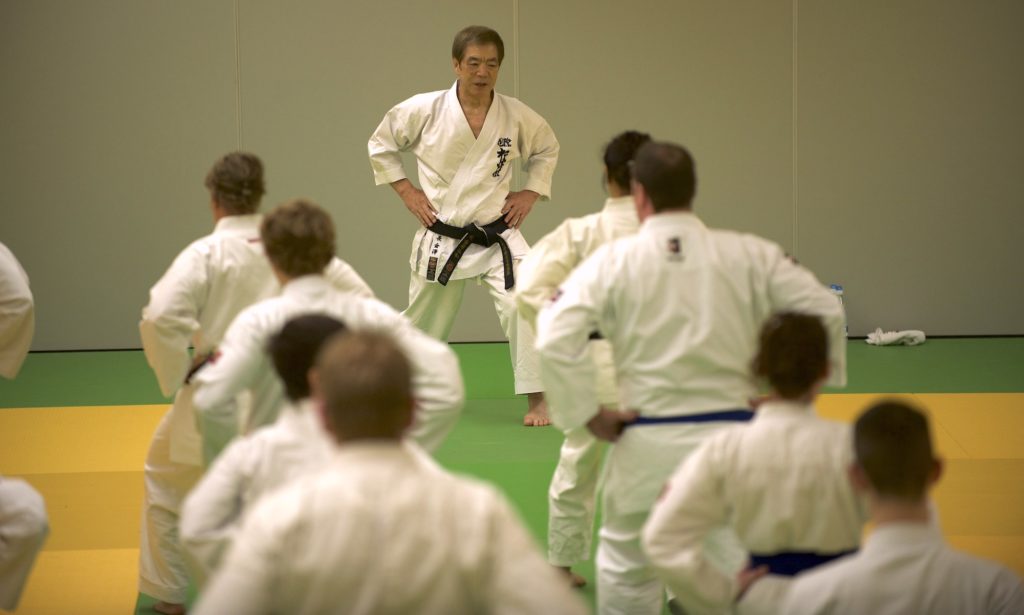Karate, like many other martial arts, can play a valuable role in the aging process. Although common perception may place these disciplines in the domain of the young, the truth is that karate offers a multitude of benefits that can be beneficial to the elderly.
Maintaining physical condition
As we age, keeping fit becomes increasingly crucial. Karate is an activity that involves the whole body. It engages muscles, improves strength and endurance and helps maintain a healthy weight. The movements performed during katas (sequences of movements) and kumite (sparring) involve many muscle groups and can be modified to suit all physical conditions.
Improved balance and coordination
Practicing karate helps improve balance and coordination, two essential aspects of preventing falls, a common risk among the elderly. Karate postures require particular attention to balance, and the repetition of these movements reinforces reflexes and stability.
Chronic disease prevention
Studies have shown that regular physical activity can help prevent and manage chronic diseases such as heart disease, diabetes and high blood pressure. Karate, as a form of physical exercise, can help keep these conditions under control.
Mental health and emotional well-being
The practice of karate is not limited to the physical dimension. It also has a positive impact on mental health. The concentration required to perform techniques correctly helps to keep the mind sharp, while the meditative aspect of katas can bring a sense of calm and serenity. What’s more, regular training can boost self-esteem and confidence, which is beneficial at any age.
Socialization
The dojo, the place where karate is practiced, is a place where people meet and socialize. For the elderly, who can sometimes feel isolated, taking part in karate classes can provide an opportunity to bond with people of all ages who share common interests.
Improved quality of life
In short, karate can make a major contribution to improving the quality of life of the elderly. As well as promoting physical and mental health, it offers opportunities for socialization and lifelong learning. It’s an art that can be practised throughout life, bringing discipline, balance and pleasure to those who commit themselves to it.
It’s important to note that, as with any physical activity, older people should consult their doctor before taking up karate, especially if they have pre-existing medical conditions. It is also
It’s a good idea to find an instructor who understands the specific needs of the elderly and can adapt the teaching accordingly.


